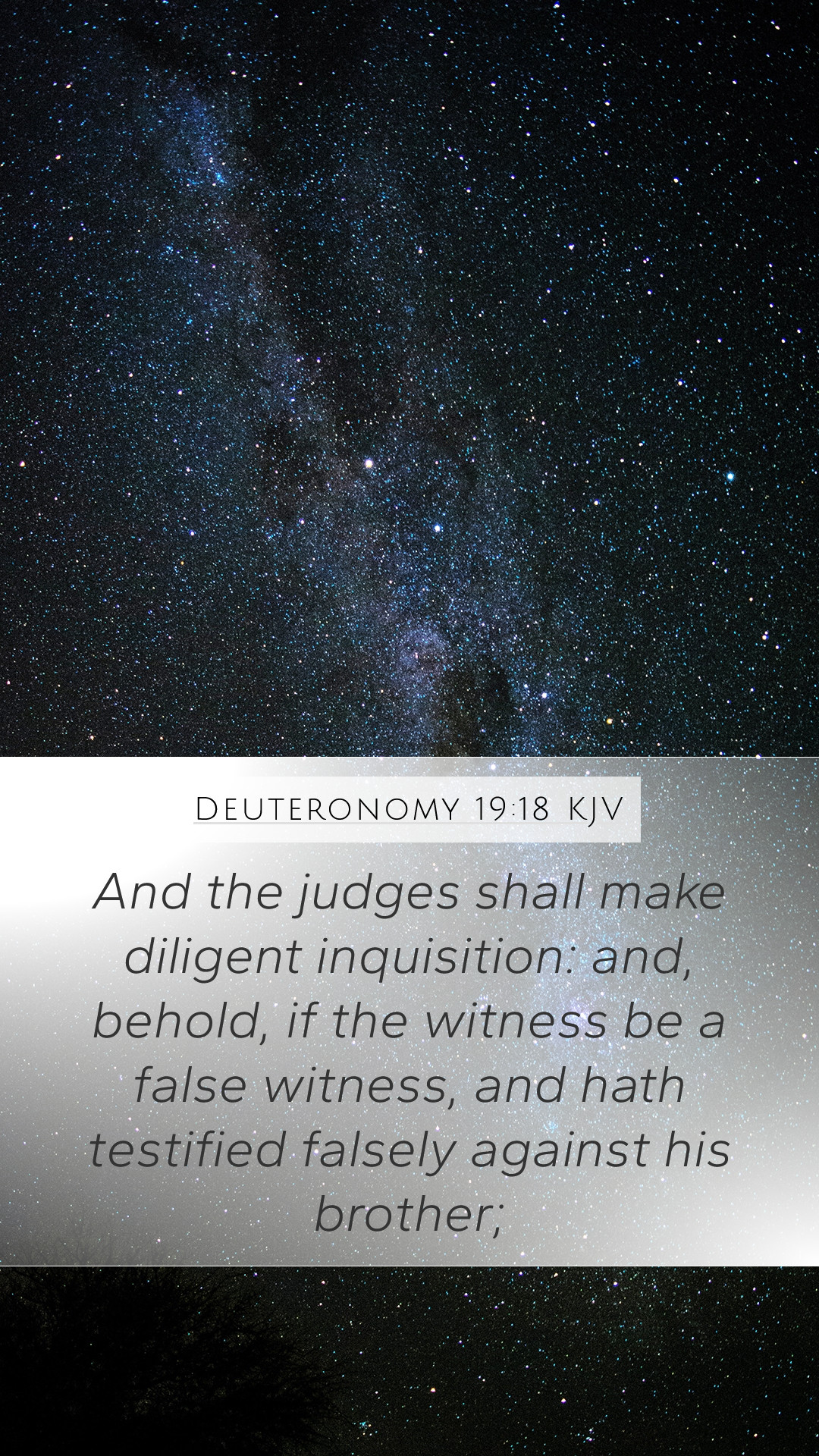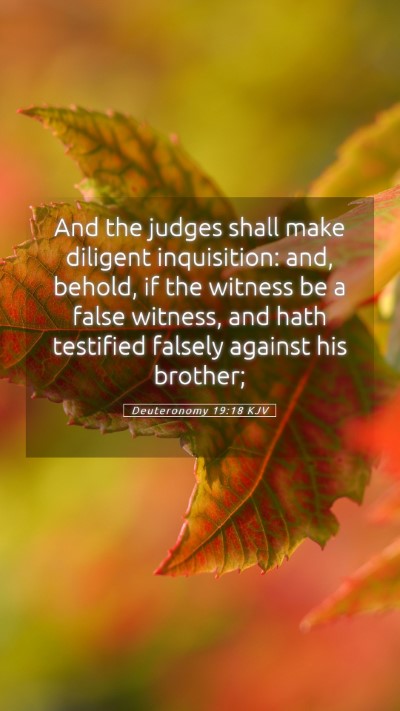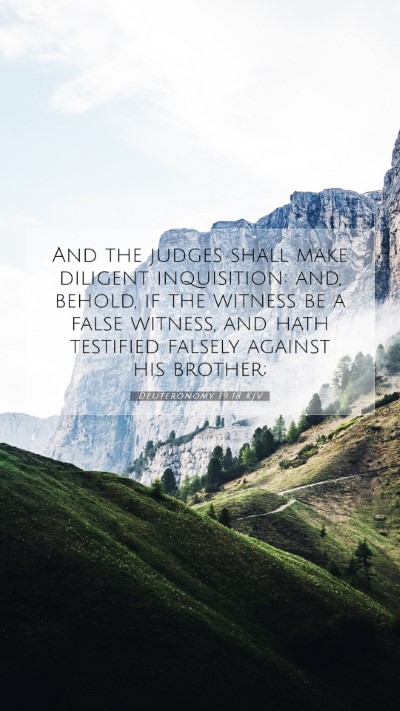Understanding Deuteronomy 19:18
Verse: "And the judges shall make diligent inquisition: and, behold, if the witness be a false witness, and hath testified falsely against his brother;" (Deuteronomy 19:18 KJV)
This verse addresses the importance of justice in judicial proceedings, particularly the role of witnesses. It emphasizes the responsibilities of judges to examine evidence carefully to prevent false testimonies that could lead to wrongful accusations. Below is a detailed exegesis combining insights from public domain commentaries.
Bible Verse Meanings
Deuteronomy 19:18 serves as a warning against the consequences of false witness and stresses the necessity for thorough scrutiny in the pursuit of justice. Matthew Henry highlights the gravity of bearing false witness, emphasizing that such actions are an affront to community integrity and divine law.
Bible Verse Interpretations
- Judicial Integrity: The verse underscores the judges' duty to ensure that any witness testimony is credible. Albert Barnes notes that diligence in investigation is crucial to uphold the truth in legal matters.
- The Nature of False Witness: Adam Clarke elaborates that a false witness can lead to significant harm, both to individuals and the broader social fabric. The text seeks to establish mechanisms that prevent such injustices.
Bible Verse Understanding
Understanding this verse requires acknowledging the cultural context of justice in ancient Israel. The role of judges was not only to interpret the law but to protect community members from injustice. Matthew Henry points out that the verification of a witness's testimony serves to maintain societal order.
Bible Verse Explanations
In explaining this passage, it becomes evident that the diligence mentioned is a call for judges to engage thoroughly with each case, ensuring that every aspect is considered. Barnes emphasizes that the potential for human error necessitates such caution.
Bible Verse Commentary and Exegesis
Commentators agree that the call for inquiry and scrutiny aligns with the overall biblical principle of seeking truth and righteousness. Clarke notes that the prevalence of falsehood can undermine public trust and justice.
Bible Study Insights
For anyone engaging in bible study or Bible study groups, Deuteronomy 19:18 serves as a powerful reminder of the ethical responsibilities inherent in witnessing and testimony. Such discussions can open avenues for understanding broader biblical principles related to justice and accountability.
Applying Bible Verses to Daily Life
Applying the insight from this verse requires reflection on personal integrity and the truths we uphold in our interactions with others. It also prompts consideration of how we handle conflicts and accusations in our communities.
Related Bible Cross References
- Exodus 20:16: "Thou shalt not bear false witness against thy neighbor."
- Proverbs 6:19: "A false witness that speaketh lies, and he that soweth discord among brethren."
- Matthew 7:1-2: "Judge not, that ye be not judged..." - highlighting the need for careful judgment.
Concluding Thoughts
In summary, Deuteronomy 19:18 not only lays a foundation for judicial practice in biblical Israel but reminds us of the ongoing relevance of truth in our lives today. As we engage in Bible study and reflect upon how to interpret Bible verses, let us carry forward the mandate for truthfulness and justice outlined in this critical passage.


